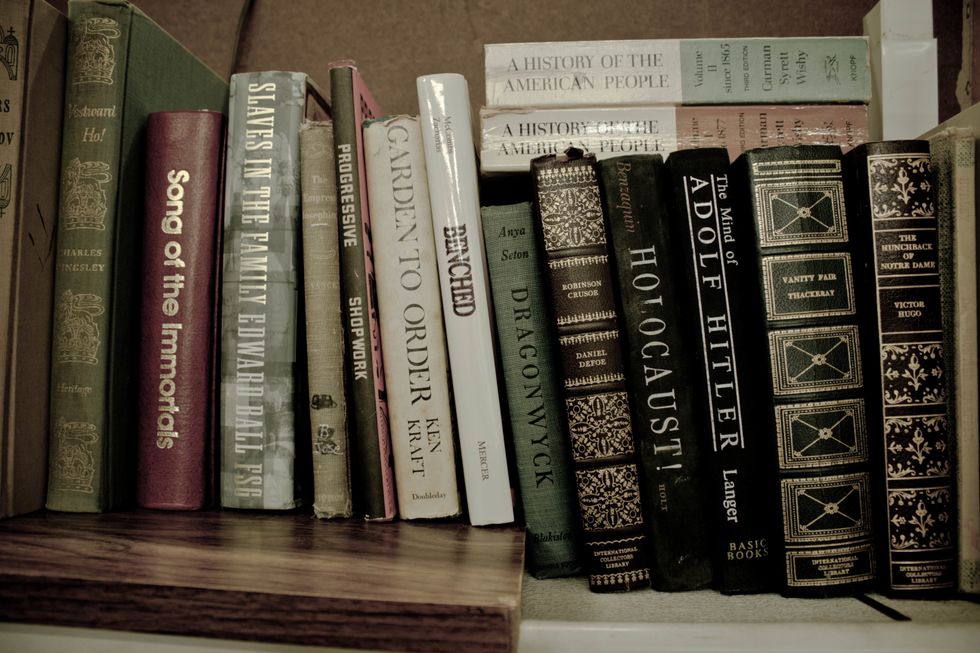For most of my young adult life, I was a pretty avid reader. In addition to my school reading and assigned books, my friends and I would often have several different "RFP" books, or "reading for pleasure" books. We would sometimes choose the same series to read, or simply find our own young adult dystopian fiction and then recommend it to the rest of the group once we finished. However, whether I was reading "The Book Thief," "The Fault in Our Stars," or "Gone With The Wind," I never managed to deviate from my comfort zone — fiction.
A major preconception about nonfiction — as it had previously been my own — is that it can be boring. Nonfiction entails a biography or a summary of an event or history that can feel like a history class. As someone who has always enjoyed writing and reading fiction, I loved the sensation of creating my own world and scenarios with the power of my imagination and the instrument of words on a page. I personally could not fathom a reason for reading a nonfiction book outside of my history classes and assigned readings.
This summer, however, I picked up an interesting read that I had read about in the New York Times. The book, "The Language of Kindness" is a nonfiction account of British nurse Christie Watson. The book was completely different from any book that I would usually choose, but as I have not read in a while, I was eager to try something new and hopefully fall back in love with reading itself. I wanted to challenge myself and to possibly disprove my own preconception of nonfiction being boring.
When I began the novel, it immediately drew me in. The account was not a clear, chronological account of Watson's own experiences but rather a series of vignettes that etched together common themes that repeated throughout the narrator's life. From her perspective as a nurse, the reader is able to learn about Christie's struggles with her passions and the pursuit of her career. In the stories of her encounters with patients in various wards and parts of the hospital, the reader can live through these experiences and attempt to relate to the life of a nurse in London. As a college student in New York City, I have no way of appreciating the perspective of the life that Christie has unless I make an effort to do so in reading her account.
Her work succeeds not in weaving short tales from her career and personal life, but instead, in emphasizing the lessons, she learns — and even what she can not even begin to understand. She goes into detail about her confusion as to what the job description of a nurse is, as she lists several concepts that different people before her have developed. She agrees with contradictory definitions, and yet arrives at an even more unsettling and complex conclusion than she had anticipated.
In nonfiction works such as Christie Watson's, the reader has the ability to relate with not just a fictional creation of an author's imagination, but rather an authentic human being. The stories themselves that come together to build the history of an author like Watson might not prove as enthralling as a dystopian tale, or a thrilling epic, but they still manage to help us better understand our own humanity to some greater extent.
I especially found this to be true in the life and work of Watson, for her book exemplifies a life dedicated to others and the pursuit of greater human compassion and understanding. In seeking to soak up real and genuine perspectives of those around us in nonfiction works, we broaden our intellectual horizon and embrace new understandings. In reading this one nonfiction book alone, I already feel a greater thirst to learn more about the world around me not through the greed of my own singular experiences, but rather through the richness of the outside perspective.
Even if you don't consider yourself an avid "reader," I challenge you to pick up a nonfiction read. Instead of scrolling through social media or using any other means to see someone else's "perspective," pick up a book and allow yourself to delve into the experiences and thought processes of a complete stranger. You never know what you might discover about yourself and your own ideas and beliefs.



 Photo by
Photo by  Photo by
Photo by  Photo by
Photo by 


















